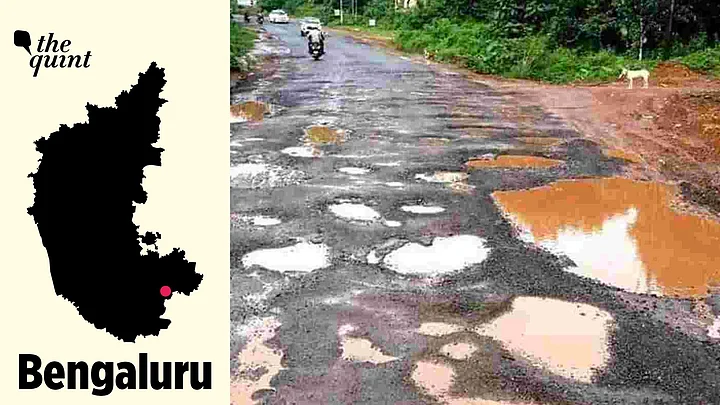The Economist Intelligence Unit (EIU) has released a report on Global Liveability Index for the year 2022, and Indian cities, particularly Bengaluru, have been ranked at the bottom of the index. It was the first time that five Indian cities – Delhi, Mumbai, Chennai, Ahmedabad, and Bengaluru – had been chosen for EIU ranking.
All the five cities have performed poorly, and are ranked between 140 and 146 out of 173. India's capital Delhi was ranked 140 with a score of 56.5 and Mumbai was ranked 141 with a score of 54.4.
Chennai was placed at 142, and Ahmedabad in West was placed at 143. Meanwhile, the country’s IT capital and city of gardens Bengaluru ranked 146 with a score of mere 46.4.
The EIU is the research and analysis wing of The Economist Group which runs the The Economist newspaper. As per the EIU report, Austria's capital Vienna topped the liveability ranking, while Syria's capital Damascus ranked the last.
Why Did Bengaluru Fare So Badly in the Global Liveability Index?
Bengaluru, which is a go to destination for start-ups, IT industries and other multinational companies, was ranked at the top in Ease of Living Index, in a survey carried out by Ministry of Housing and Urban Affairs by Government of India two years ago, at the peak of the Coronavirus pandemic. However, two years later, the same city is now among the lowest when ranked among 173 global cities.
Speaking to The Quint about the EIU’s index and ranking of the Indian cities, urban expert Ashwin Mahesh said, “Except for Delhi no other city is benchmarking itself against the rest of the world. Delhi to some extent is trying do something on the scale that other global cities are doing. While, Bengaluru is working in clusters, Delhi is building networks. To put it in perspective, the government here needs to commit itself to make dramatic change happen.”
Bengaluru, which attained a meagre score of 46.4 was assessed based on five broad parameters – healthcare, stability, education, infrastructure, and culture and environment. While Bengaluru fared well in terms of culture, environment, and education, the city scored poorly when it was assessed for its quality of roads, public transportation system, stability and healthcare.
Among all the parameters considered by EIU, stability, culture, and environment hold the highest weightage of 25 percent each, where as infrastructure and healthcare carry a weightage of 20 percent each. Education carries 10 percent weightage.
Bengaluru, which is known for its poor infrastructure, was recently in the news after the district authorities were pulled up for spending Rs 23.51 crores to lay asphalt on Bengaluru roads ahead of PM Modi’s visit to the city. The BBMP also faced a major embarrassment after a portion of the road was completely damaged within 24 hours of its construction.
Urban Experts Defend Bengaluru, But Call Out Mismanagement by the Government
Environmentalists and urban experts that The Quint contacted with were critical of the EIU's ranking of Bengaluru. Despite expressing his concern about burdening traffic jams and weak public transportation system in Bengaluru, Vinod Kartavya, founder of Bengaluru Hudugaru, a civic body in the city, rubbished the EIU's report on liveability index.
"I understand there are certain parameters being considered while ranking cities. But, I am not very sure of the data that they have considered. It seems illogical to me that the experts in London are comparing the education system of Bengaluru and Vienna, without taking into consideration the history of the two cities," said Vinod Kartavya to The Quint.
"I am not bothered about the comparison with other cities. All the five Indian cities that were chosen for ranking lack points in at least one or two parameters. Also, all the cities are clustered within the same bracket and it would be unfair to call Bengaluru the least liveable city."Ashwin Mahesh, Urban Expert and Social Technologist
However, Mahesh said that Bengaluru truly lacked resources in terms of public health, education, and infrastructure. Raising concerns over mismanagement of COVID-19 pandemic, he said that among 198 wards in Bengaluru city limits, more than half did not have public health care centres.
Adding to lack of resources in schools and Anganwadis, one out three students who appeared for pre-university exam in Bengaluru did not pass the assessment this year.
"Stability is also a huge concern in Bengaluru. The city has not had an elected municipal council for about two years. There is uncertainty over when the elections will be held," added Mahesh.
Meanwhile, Naveen Karant, an HR professional and a resident of Bengaluru for the past 29 years expressed his dejection after going through the report and said that the city lacked proper public transportation system and suffered from increasing traffic congestion.
Noting that he had migrated from his village in Dakshina Kannada almost three decades ago, Karant told The Quint, "The cost of living is very expensive, while employability options are limited here in Bengaluru. This is further making the city a hostile place for migrants. But, it is indeed better than Delhi and Mumbai when it comes to culture and environment."
Over the past few years, residents of Bengaluru have also taken to social media platforms to show their disappointment over worsening roads and traffic management system in the city.
As of now, the city has no local representation and is being managed by the executive ever since 2019.
(At The Quint, we question everything. Play an active role in shaping our journalism by becoming a member today.)
